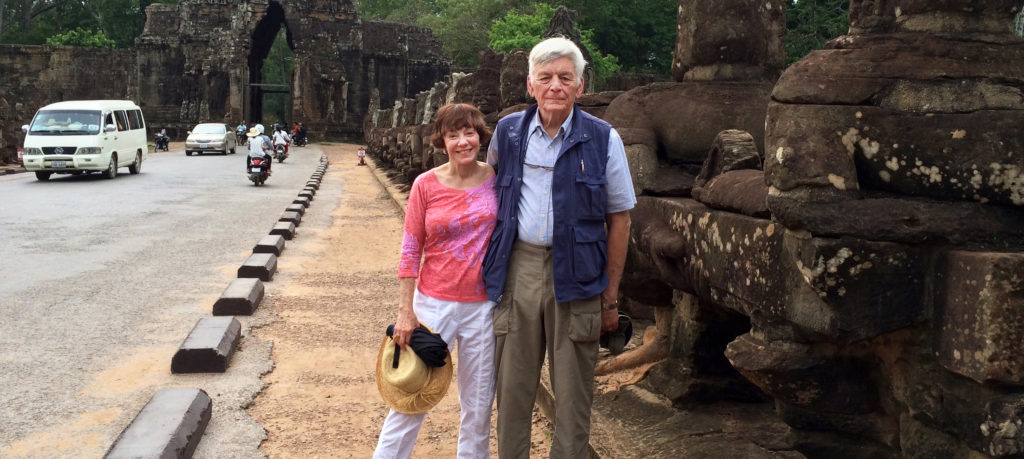
Former Turbo Lab director still teaching, consulting
Can a historical landmark have feelings? Former director of the Turbomachinery Laboratory, Dr. Dara W. Childs, is beginning to think so.
“I felt like Mount Rushmore,” he said, laughing, referring to his first post-retirement experience at the Turbomachinery & Pump Symposia (TPS). “Some young person would walk up to me and say, ‘Dr. Childs I am so happy to meet you. Would you mind standing here while I take a picture next to you?’”
Childs said this happened at least four times during the three-day continuing education conference last month, which is organized by the Turbo Lab. “I could see it coming—the look, the camera,” he said. “It’s entertaining. I’m pleased to be remembered.”
Childs retired from the director post in January after more than three decades of leading the Lab and chairing the Turbomachinery & Pump advisory committees who oversee the program for TPS. He remains active by teaching short courses, consulting, and seeing a final graduate student through to commencement in May.
“I enjoyed this symposium more than any in my memory,” Childs said. “I had a good time. I thought the quality of the content was as good as ever, and I thought the execution was excellent.”
Since retiring almost one year ago, Childs has continued traveling the world with his wife, Judy, helped teach a short course in Mexico, and picked up a few consulting jobs—all activities he plans to continue so long as he is able. In recent years, he has presented Rotordynamics short courses in Brazil, Qatar, and Singapore.
There are very few new rotordynamics and vibration issues in turbomachinery that haven’t already been addressed via experience or in the literature, Childs said. His consulting work consists of considering symptoms and diagnosing the cause based on knowledge—not running new analyses. In January, he secured a consulting job in which he diagnosed the absence of full reaction forces, including moment coefficients, as the reason why the prior analyses had failed to explain an instability in a turbo expander.
“I was able to predict what was observed in test results from more than 15 years ago,” he said. In addition to consulting, Childs plans to continue teaching short courses on rotordynamics. He will be part of a three-and-a-half day course in Houston, January 7-11, 2019. Registration for the course, organized by the Turbo Lab, is now open at turbolab.tamu.edu/short-courses.
“You have to keep changing these courses,” Childs said. “Engineers, somewhat surprisingly, don’t like equations. They like case studies. They want to talk about someone else’s problems.” Childs’ latest book, Dynamics in Engineering Practice with Case Studies, published in 2015, includes 31 case studies.
While his time spent at the Turbo Lab is much less frequent, Childs still remains involved with an office at the lab and as a lifetime member of the Turbomachinery & Pump advisory committees.
“I am greatly relieved that Eric is running [the lab and symposia],” Childs said of his successor and former colleague, Dr. Eric L. Petersen. “I’m happy to see that it’s as good as ever. The symposia have historically evolved to capture new requirements. If it hadn’t changed, it wouldn’t still be here.”
Dr. Childs can be contacted at [email protected].
The Texas A&M Engineering Experiment Station (TEES) Turbomachinery Laboratory makes a vital impact on turbomachinery and related industries through research, education and professional workforce development.
I enjoyed this symposium more than any in my memory. I had a good time. I thought the quality of the content was as good as ever, and I thought the execution was excellent.
Dr. Dara W. Childs
